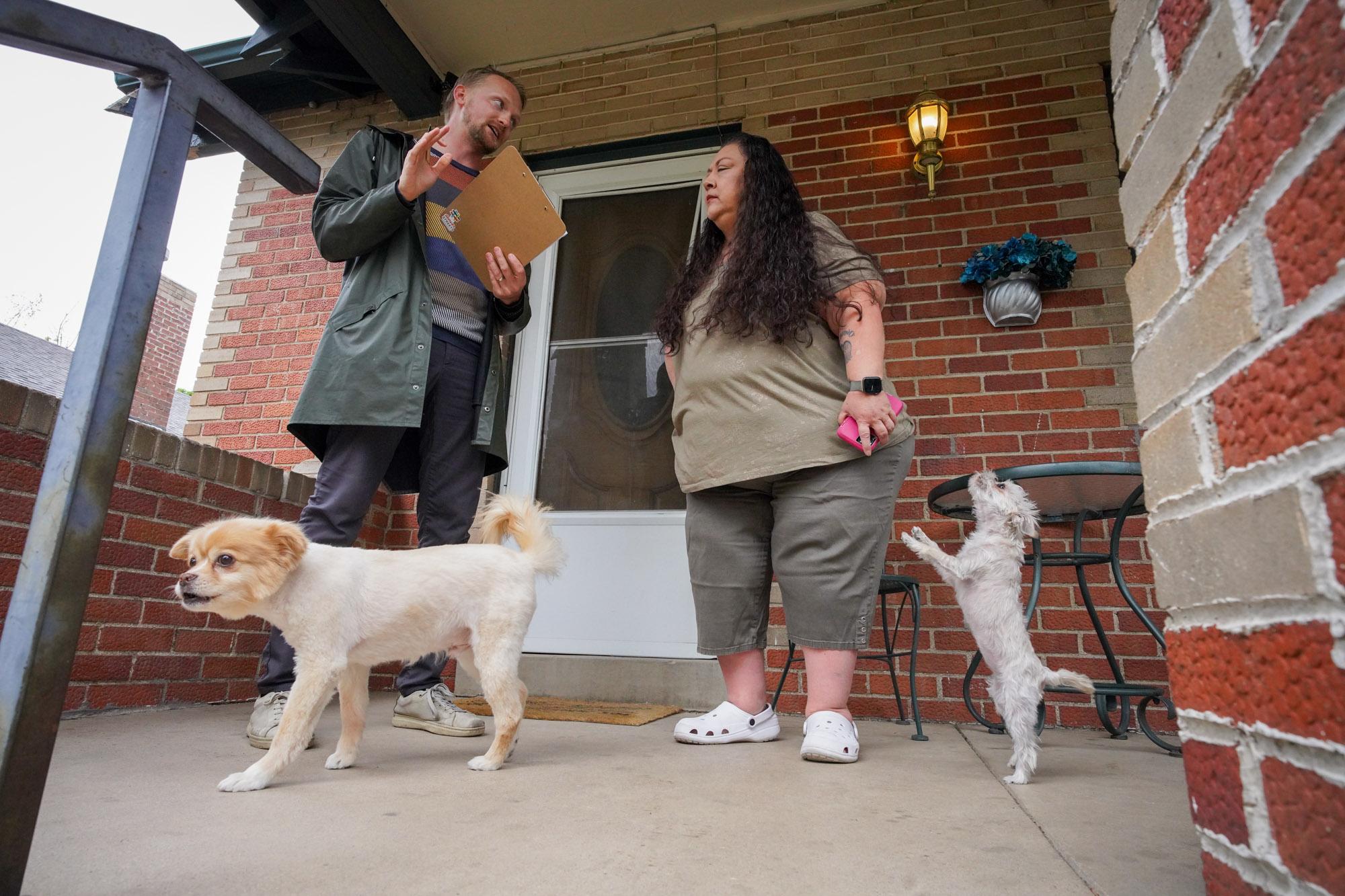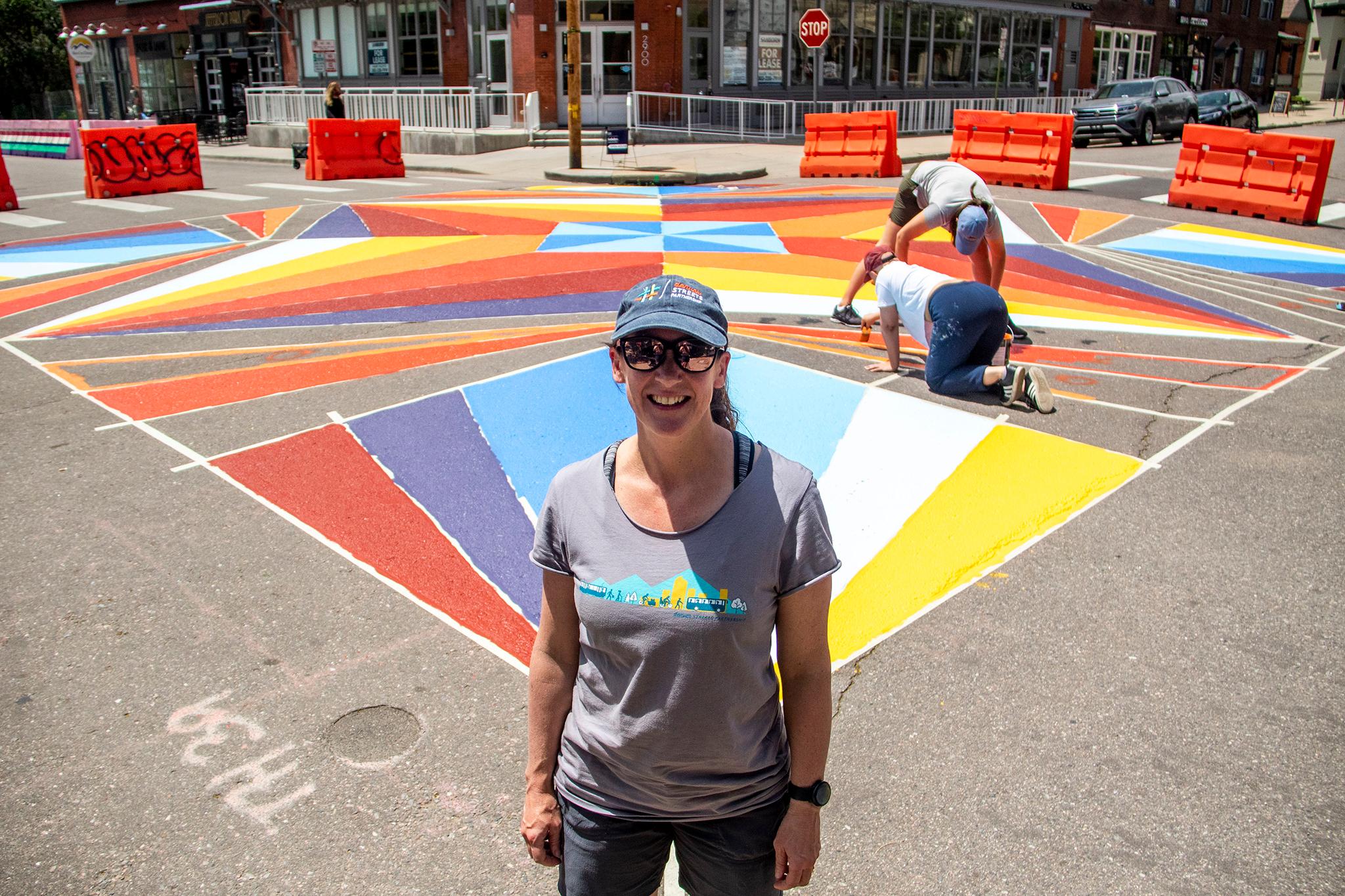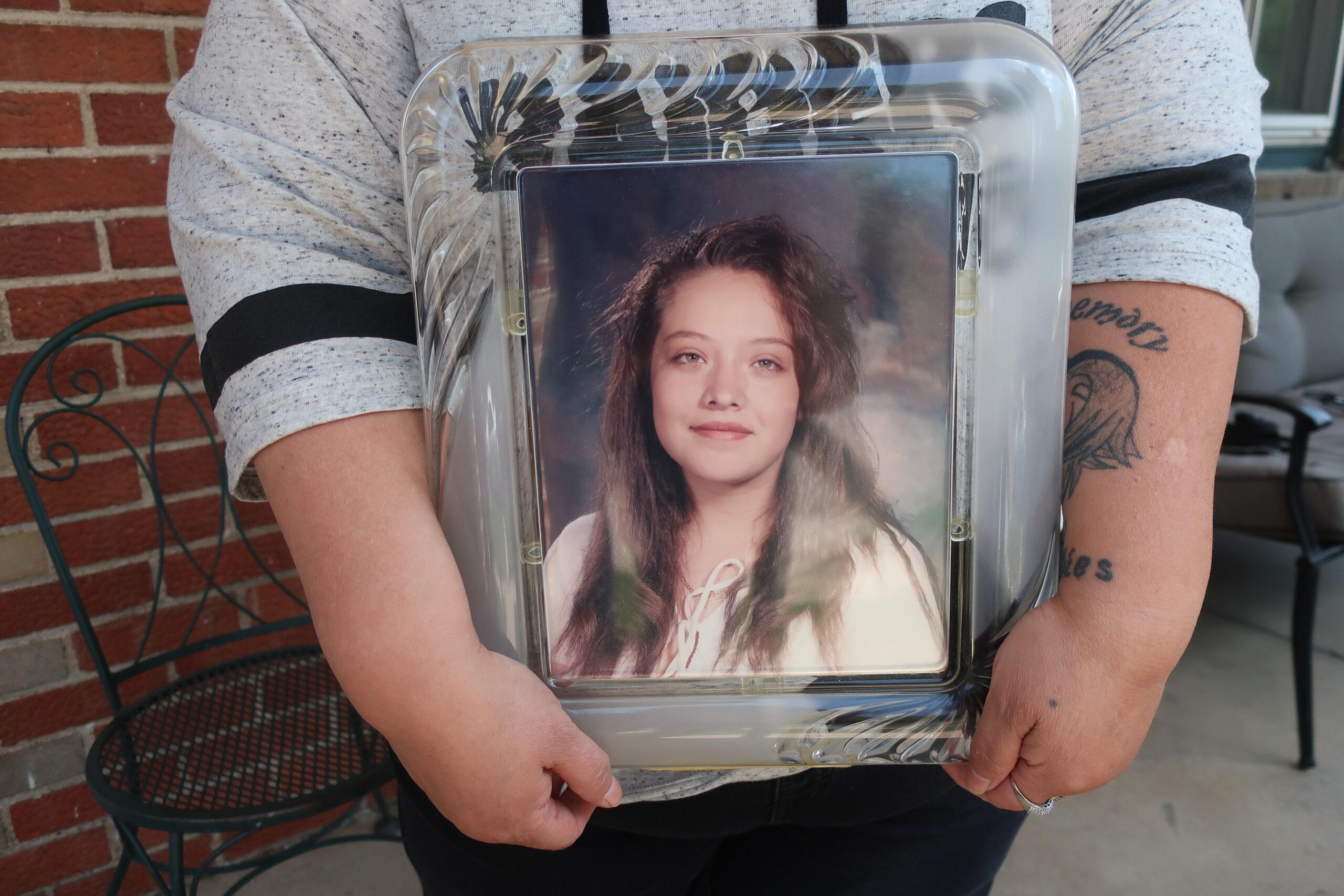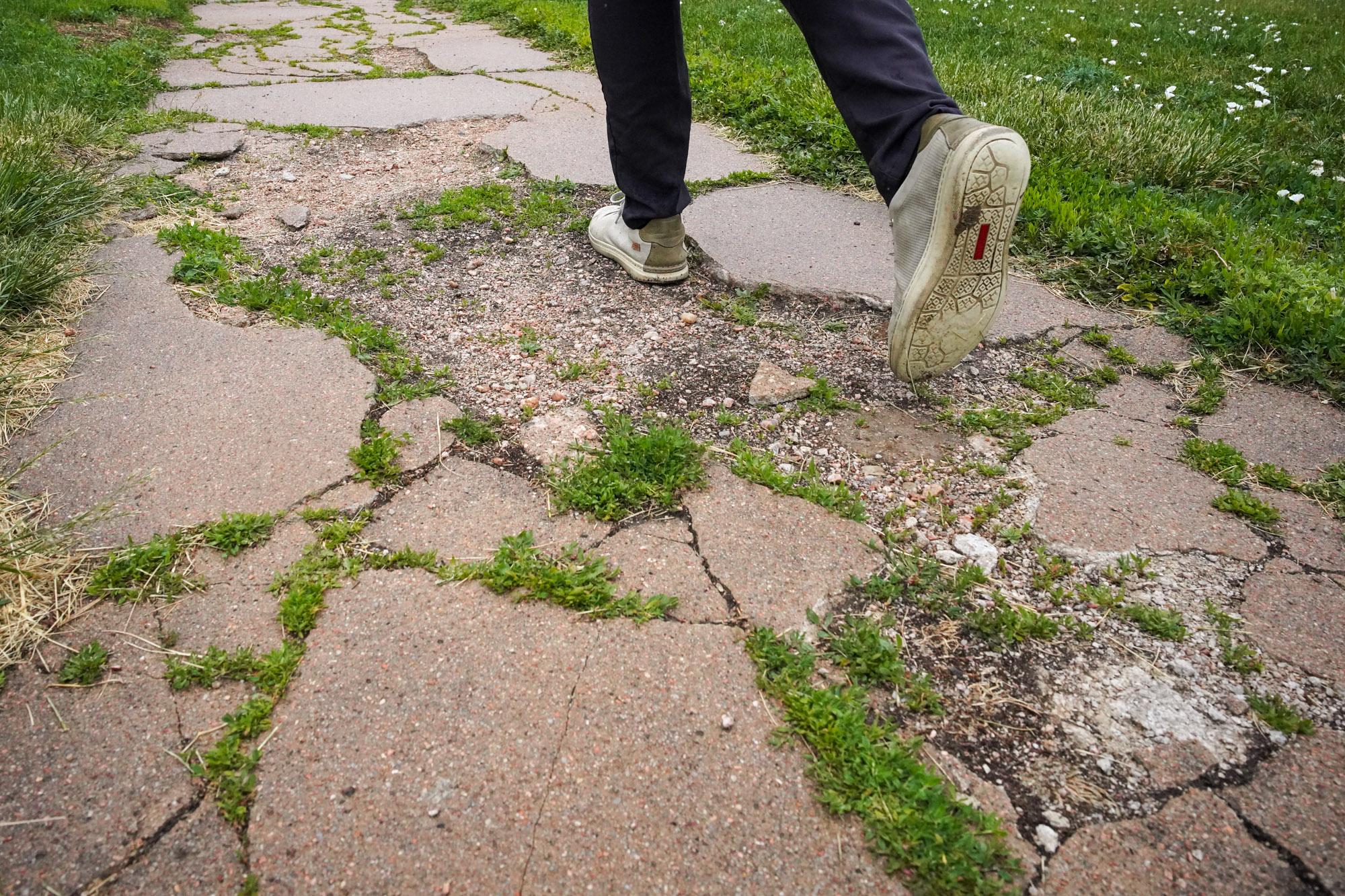Andrea Euresti was taking a nap the moment her life changed forever. It was her day off, and she was resting after dropping her kids off at school.
Then, around noon, the phone rang. The voice on the other end said her 14-year-old daughter LaToya Cisneros had been struck by a vehicle while walking to lunch.
"I was scared. I was crying," said Euresti, a West Colfax resident.
She changed out of her pajamas and sped to the hospital. Her daughter's face was bruised, her ribs were broken and her lungs collapsed. The driver had hit her daughter head-on, Euresti said, smashing her head into the windshield before running her over and dragging her for 10 feet. The catalytic converter had burned the girl's chest. Hundreds of her friends and relatives waited outside as hospital staff revived her multiple times.
Finally, Euresti said, she was allowed in.
"I kissed every little bruise, cut and scrape that was on her," Euresti said. "And as soon as I kissed her lips and told I love her, she passed away again. She went flat line."
Cisneros had been walking on a frontage road near her school in Lakewood because the sidewalks were nothing more than a very narrow slab common in Denver's suburbs and in some parts of the city itself.

Better sidewalks may have saved her daughter's life, Euresti said, which is why she is supporting a proposed ballot initiative in Denver that would raise hundreds of millions of dollars to build and repair sidewalks across the entire city. In addition to safety, advocates also say the initiative would help the city meet its climate goals and make it more equitable.
"Low-income neighborhoods are the least likely to have a complete, well-maintained sidewalk network," said Jill Locantore, executive director of the Denver Streets Partnership, the organization sponsoring the ballot initiative. "But those households also are the most likely to depend on walking as a form of transportation, whether it's to get to transit or to other daily destinations."
Denver's sidewalks haven't been a priority for city leaders, advocates say.
Property owners have been responsible for the maintenance and repair of sidewalks adjacent to their properties since at least the 1950s. City government has also historically lacked an effective process to inspect sidewalks, a recent city audit says. Repairs, which can cost residents thousands of dollars, were instead driven by complaints.
Those policies, or lack thereof, in conjunction with shifting standards for sidewalk construction over the decades, have resulted in a yawning gap in the quality and existence of sidewalks linking neighborhoods and streets across Denver.
"Right now, 40 percent of our streets have missing sidewalks or substandard sidewalks," Locantore said.
A 2018 city program was meant to enforce the existing sidewalk law and help residents pay for repairs. But in 2020, the city paused that effort. The city auditor then slammed it, finding it would take 50 years to complete repairs alone -- Locantore estimated that building missing sidewalks would take 400 years. She said that's unacceptable, especially in light of rising traffic deaths in the city.
"Our elected leaders have told us for many years, 'Yes, but not now,'" Locantore said. "So we are taking it directly to voters to decide whether they think sidewalks should be a priority."

The measure would shift the burden of building and maintaining sidewalks to the city. It would also impose new fees on property owners that Locantore said would raise about $40 million a year -- about 10 times what the city is spending now on sidewalks.
She said the new revenue stream could be bonded to raise $850 million up front, which could build a complete sidewalk network in every neighborhood within nine years. Locantore intends for every street-facing property in the city -- even those developed decades ago without sidewalks in mind -- to get one.
She acknowledged that it's an ambitious plan.
"But we've taken on other ambitious infrastructure projects before," she said. "We've spent billions of dollars widening our highways. We're spending a billion dollars upgrading our airport. We think building out a complete sidewalk network is totally possible, too."
Fees are the plan's backbone -- and they'd hit some residents pretty hard.
Property owners would pay an annual fee based on how much of their land faces a street -- the linear footage, if you want to be technical -- and the type of street to which the property is adjacent. (If you've paid the city's annual storm water drainage fee based on how much "impervious area" is on your property, this may sound familiar to you.)
Fees range from $2.15 per linear foot on a residential street to $4.30 per linear foot on downtown streets. That means an annual fee of about $110 a year for someone who owns a single-family home on a typical 50-foot-wide property, Locantore said.
But that fee would be much, much higher for some unlucky property owners.
Lavern Gutierrez's Bear Valley home sits on a corner lot with 87 linear feet on West Bates Avenue and 138 linear feet on South Sheridan Boulevard. That means her annual fee would be about $680.
"That doesn't sound fair. It doesn't sound right," Gutierrez said.
She said Denverites are facing problems bigger than bad sidewalks.
"Denver's very expensive to live in," said Gutierrez, who's been in her house for more than a decade. "I bought my house at a perfect time. Right now, I wouldn't be able to afford a house. A lot of people are struggling because of the prices. Why make it more expensive?"
The fees also concern Denver City Councilmember Kevin Flynn. He calculated that some homeowners could see annual assessments of more than $1,100. He also worries that the city and construction industry won't be able to keep up with Locantore's aggressive timeline.
"I get the frustration of folks who think that the city is moving too slow with its program. And we are. I get that," Flynn said. "This, I think, may be the opposite end of that spectrum. [It] may be moving too fast and collapse of its own weight."
Flynn said Denver Department of Transportation and Infrastructure officials are "very concerned" about the measure, though a department spokesperson declined to comment beyond saying the department would analyze the measure should it reach the ballot.
The ballot measure would discount the fees by 20 percent for property owners in lower-income neighborhoods, including East Colfax, Elyria-Swansea, Globeville, Montbello, Northeast Park Hill, Sun Valley, Valverde, Villa Park, West Colfax, and Westwood. Property owners could also defer fee payment until they sell, Locantore said. And the City Council could also adjust the new law, should it pass.
"This is a major new program that the city would be undertaking," Locantore said. "We don't anticipate that we will have gotten everything exactly right."
The Denver Streets Partnership has collected more than half of the roughly 10,000 signatures it needs by July 11 to make the November ballot.
One of those signees, just last week, was Andrea Euresti. After her daughter was killed, she fell into a deep depression and had a mild stroke. She stopped working and lost friends. She never saw her daughter graduate, pursue her dream of practicing law, or marry and have kids -- and she's reminded of those holes in her life often.

"Every holiday hurts," she said. "Every birthday hurts. Every anniversary hurts."
Several lengths of sidewalk on her West Colfax block are crumbling into a gravelly mess. Sometimes her granddaughter wants to ride her hoverboard in the street -- but Euresti won't let her. She's hopeful the sidewalk measure succeeds, and that it helps prevent other parents from knowing the pain that she lives with every day.













